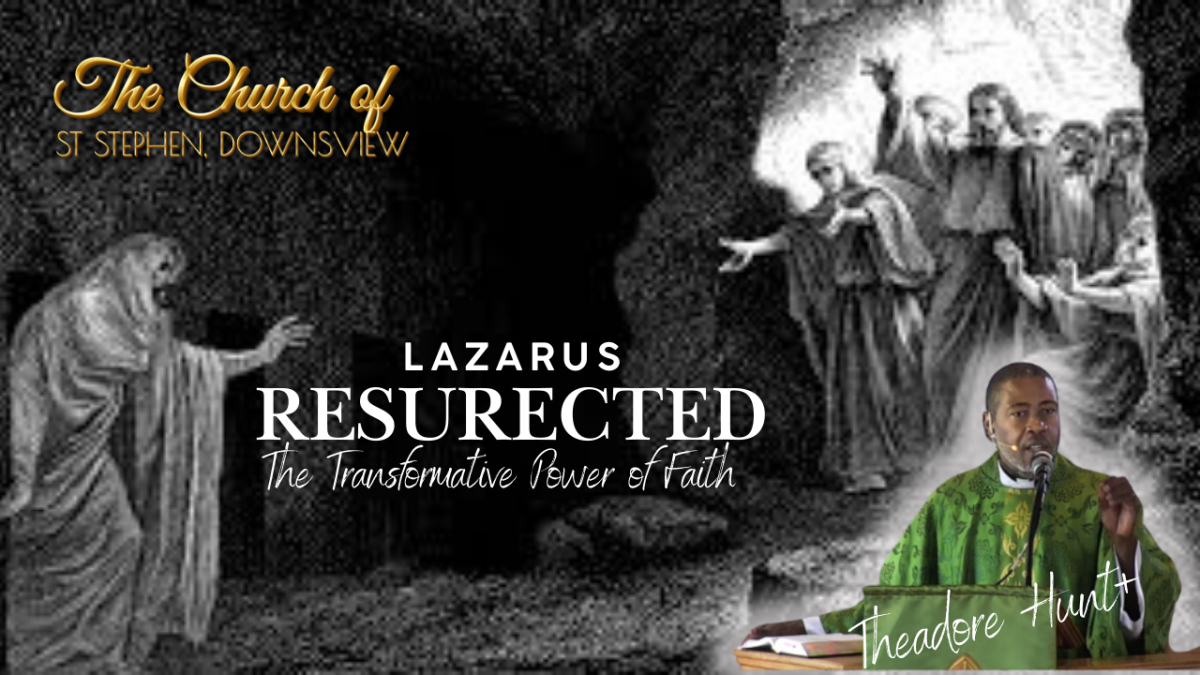 We are delighted to have all of you here today, those present and those joining via live stream. I want to discuss with you an inspiring passage from John’s Gospel, specifically chapter 11, verses 39 to 40. Here, we explore the profound moment when Jesus raised Lazarus from the dead, a moment pivotal not only for creation but also in understanding our human life and faith in death.
We are delighted to have all of you here today, those present and those joining via live stream. I want to discuss with you an inspiring passage from John’s Gospel, specifically chapter 11, verses 39 to 40. Here, we explore the profound moment when Jesus raised Lazarus from the dead, a moment pivotal not only for creation but also in understanding our human life and faith in death.
The Miracle of Lazarus
Jesus commanded, “Take away the stone,” to which the worry arose: “Lord, already there is a stench because he has been dead for days.” Yet, Jesus reassured, “Did I not tell you that if you believed, you would see the glory of God?” This miracle of raising Lazarus challenges us to see beyond the physical narrative to the expressions of faith.
The Significance of the Miracle
This public demonstration of divine power attracted significant attention, much to the chagrin of religious leaders who conspired against Jesus to avoid Roman scrutiny. Lazarus, undeniably dead for days, should have produced a stench, yet none was present when the stone was removed. This absence of decay signified something profound and divine at work, validating Jesus’s teachings and revealing God’s glory.
Implications for Our Faith
Jesus’s prayer at the tomb, acknowledging God’s ever-present hearing, reinforces that even as Lazarus was bound by death, God’s love never faltered. The miracle depicts that death is not the end; it is part of a broader narrative in our journey with God.
The Promise of Resurrection
Lazarus’s resurrection foreshadows Christ’s triumph over death, reminding us of our ultimate resurrection. Baptism symbolizes this renewal, marking us as God’s own, joining us with Christ in life and death. This miracle signifies that despite any trial, the enemy does not have the final say—God’s word prevails.
Life in Baptism and Grace
Paul’s teachings illustrate that through baptism, we are immersed in Christ’s death and resurrection, leading to a rebirth as new creations. This divine act is not by our might but through grace, highlighting that even when dead in transgressions, God breathes life into us through Christ.
Called to be Saints
Our identity as Christians involves acknowledging our imperfections while striving to embody holiness through Christ’s sanctifying grace. Saints are not flawless beings but are those earnest in faith, continually rising from sin to pursue God’s righteousness.
Encouragement and Perseverance
As we navigate our spiritual paths, much like Austin and Amelia will, we lean on grace and community support. Acknowledging our need for repentance and renewal, we are reminded of God’s readiness to forgive, guiding us through life’s journey toward eternal life.
Conclusion
As we commemorate All Saints’ Day, let us find inspiration in the steadfastness of faith. Though we falter, we rise anew in Christ’s grace, relentlessly pursuing a life devoted to God. May this reflection reignite our sense of purpose, instilling hope in the promise of life eternal.
